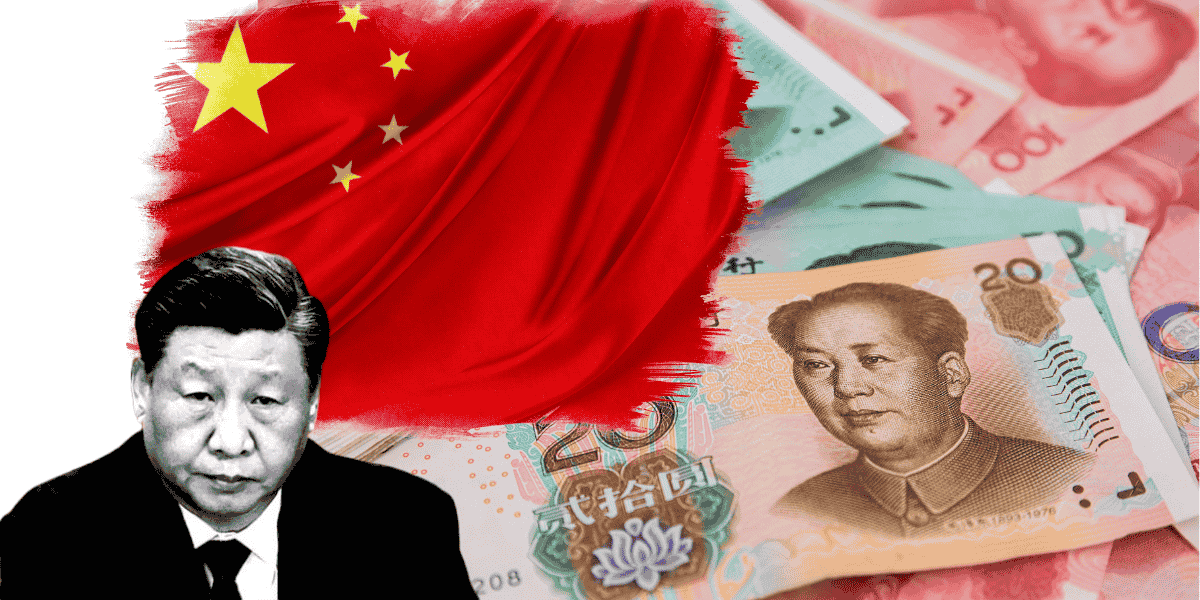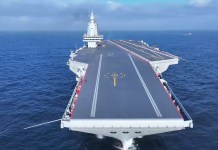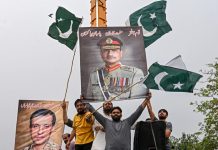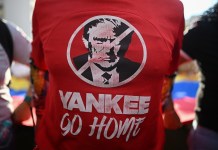Is President Xi Jinping, the supreme leader of the People’s Republic of China, in political trouble?
Is it a sign of Xi’s weakness that, instead of ignoring the invitation, he decided to send Vice President Han Zheng to represent China at Donald Trump’s Presidential inauguration on January 20?
That many keen China watchers are asking these questions appears strange at first glance. After all, for quite some time now, Xi has been considered China’s supreme, unimpeachable, and irreproachable leader. Xi had elevated himself to the same official status as communist China’s iconic leader, Mao Zedong, and done away with presidential term limits so that he could lead China for the rest of his life.
At home, he boasted of having reduced poverty and taken the country to the near status of a developed country. Abroad, Xi claimed to be raising China’s international prestige to new heights.
However, on closer scrutiny, that no longer seems to be the case, say many avid Chia-watchers. Faced with a sluggish economy, a tight job market, and intense competition in many aspects of life, things are proving difficult these days in China. So much so that many Chinese are turning to “divination, spiritualism and superstition” as these act as a “pressure-relief valve,” according to Chen Jinguo, a professor of philosophy and religion at Minzu University of China.
All this is having an impact on China’s political leadership. Dr. Willy Wo-Lap Lam, an Adjunct Professor at the Center for China Studies at the Chinese University of Hong Kong and author of the book, “Xi Jinping: The Hidden Agendas of China’s Ruler for Life,” believes that Xi Jinping is in political trouble.
Xi, according to him, faces challenges from multiple groups, including retired politburo standing committee members, fellow princelings, some of the military top brass, and even some in the country’s middle class. “As a result, his ability to shape policy in the financial, foreign affairs, and other arenas has been truncated,” he argues.
However, all this does not mean, Lam cautions, that Xi is going to be ousted from power, but it is worth understanding who his enemies are.
Apparently, all former party heavyweights and supporters of late Deng Xiaoping’s economic policies, whom Xi has sidelined over the years, have joined hands in expressing disapproval of the latter’s handling of economic issues and relations with the United States since the third plenary session of the 20th CCP Central Committee last July.
And, a relatively weaker Xi has now started listening to the dissidents, which Lam explains was evident at a banquet on the eve of the country’s National Day on October 1, 2024, when Wen Jiabao and Li Ruihuan sat on either side of the Chinese President.
“This was regarded as a subtle signal by Xi that he was receptive to advice or warnings from former senior leaders, even if they lacked the authority to remove him. Their barely concealed critique of Xi’s policy-making prowess suggests the supreme leader may be increasingly at odds with parts of the CCP’s top echelon,” Lam explains.

The second source of discomfort for Xi happens to be “princelings” (children of top communist leaders of the past like India’s political dynasts). It is an open secret that when it comes to one’s rise within the party hierarchy, one’s family reputation and Communist pedigree matter as much as competence and ideology.
Xi benefited immensely from the connections of his father, Xi Zhongxun, a top leader who had served as propaganda minister under Mao. Naturally, in the process of reaching the country’s supreme position, Xi has fought many other princelings, who have now become his fiercest critics, especially those based overseas, according to Lam.
If Cai Xia, who was a Professor at the Central Party School of the Chinese Communist Party from 1998 to 2012, is to be believed, Xi has suppressed all his competitors and consolidated his authority by explaining that he is fighting the ideological dilution of the party in the post-Deng era and rampant corruption, thereby saving the party from “self-destruction.”
But now, Xi seems to be confronted with “reactions” from all the sidelined factions. Cai Xia explains that the Chinese Communist Party (CCP) has never been a monolith. Today, it has broadly three factions – orthodox Marxists like Xi on the left; Deng’s political descendants at the center who support full-throated economic reforms and limited political reforms; and sub-factions on the right, which in the Chinese context means liberals who advocate a market economy and a softer form of authoritarianism.
Those on the right include followers of Hu Yaobang and Zhao Ziyang, both former CCP Chairmen. It also arguably includes Wen Jiabao, who was China’s premier from 2003 to 2013 and is still said to have some influence.
Xia argues that “Xi faces growing opposition from all three factions. The left, while initially supportive of his policies, now thinks he has not gone far enough in reviving Mao’s policies, with some having become disenchanted after he cracked down on the labor movement. The center resents Xi’s undoing of economic reforms. And the right has been completely silenced by Xi’s elimination of even the slightest political debate”.
Last but most important, Xi is said to have lost, of late, substantial control over personnel arrangements among the top brass of the People’s Liberation Army (PLA). Examples that have been cited in this regard are the following:
On December 26, the Central Military Commission (CMC) of the Communist Party of China (the topmost military body of which Xi is the chairman) appointed Chen Hui as the army’s political commissar and promoted him to the rank of senior general four days later. However, former army political commissar Qin Shutong and three other senior generals were absent from the ceremony. Experts believe the four might have been dismissed because of corruption issues and that the incident might reveal power struggles within the Communist Party and the military.
It may be noted here that in November, the CMC was in the news as Xi had to sack Adm. Miao Hua, one of his closest proteges in the military, because of the allegations about his “serious violations of discipline.” As the head of the CMC’s political work department, which oversees political indoctrination and personnel appointments, Miao is said to be the most senior scalp in Xi’s latest military purge.
Incidentally, since last summer, more than a dozen high-ranking figures in China’s defense establishment have been ousted, including the last two defense ministers promoted to the CMC by Xi.
Incidentally, Xi was absent recently when General Zhang Youxia, the first-ranked vice-chairman of the Central Military Commission, hosted some meetings.
“The recent investigation of the director of the CMC Political Work Department, Admiral Miao Hua, as well as that of around a dozen rising stars in the PLA Navy, may be a result of Xi’s opponents in the PLA trying to get rid of his loyalists, including a number of officers who had worked with Xi during his time in Fujian Province in 1985–2002,” according to Lam.
Significantly, the PLA Daily, the official newspaper of the People’s Liberation Army, recently championed the virtues of “collective leadership,” which experts interpret as a slap in the face of Xi’s insistence since he came to power in 2012 on the dictum that all decisions should “rely on a single voice of authority.”
All these developments suggest some erosion in Xi’s authority, which, if true, could be a source of good news for countries in the Indo-Pacific. Pressures on him at home will likely make Xi a little more restrained in displaying Chinese hard power in the South China Sea and the Taiwan Strait.
- Author and veteran journalist Prakash Nanda is Chairman of the Editorial Board of the EurAsian Times and has been commenting on politics, foreign policy, and strategic affairs for nearly three decades. He is a former National Fellow of the Indian Council for Historical Research and a recipient of the Seoul Peace Prize Scholarship.
- CONTACT: prakash.nanda (at) hotmail.com




